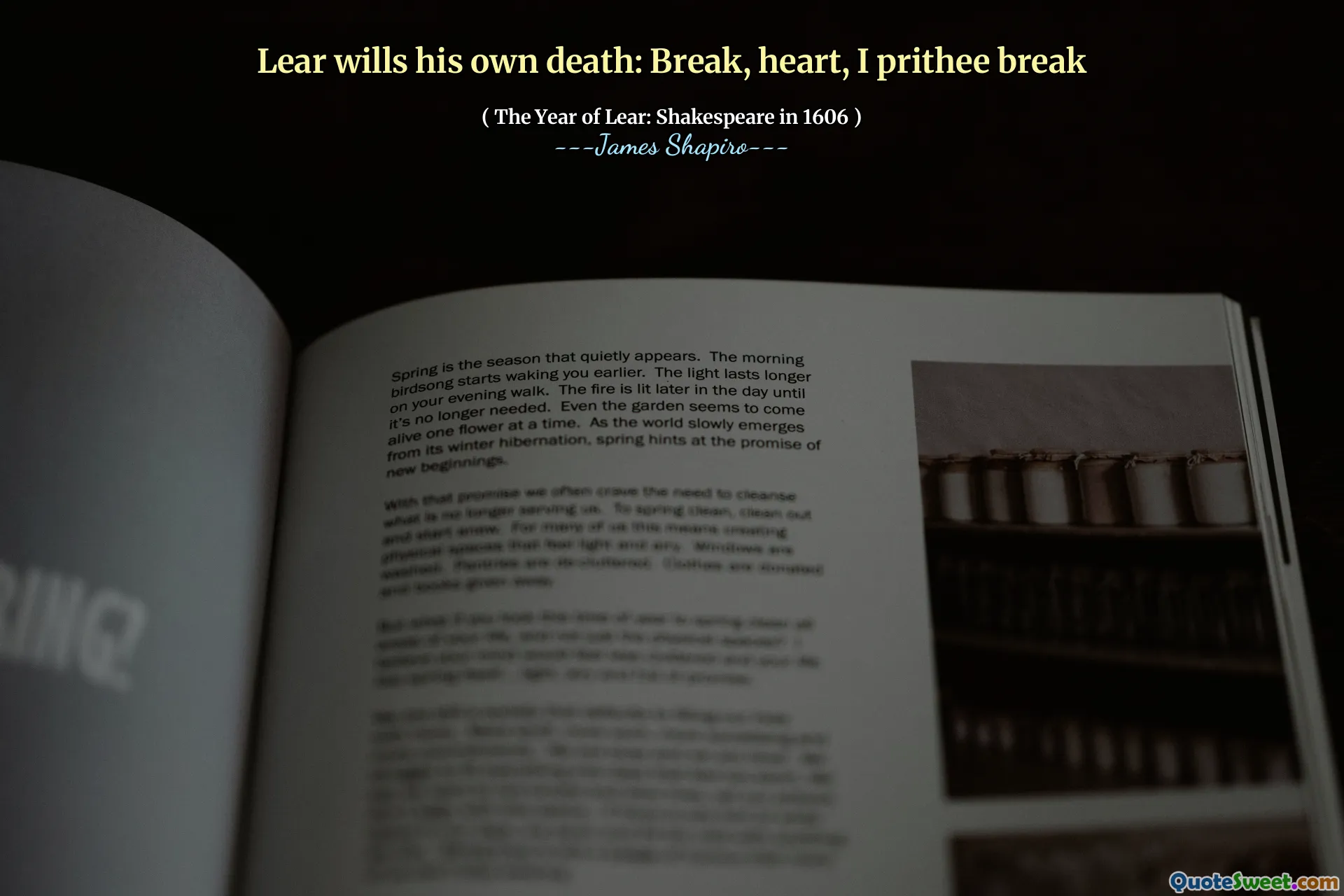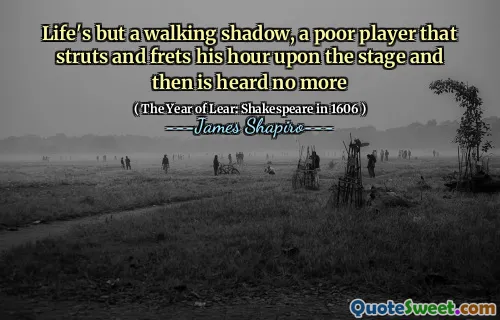
Lear wills his own death: Break, heart, I prithee break
In "The Year of Lear: Shakespeare in 1606," James Shapiro explores the profound themes of mortality and the human condition through King Lear's character. Lear's poignant wish for his heart to break signifies a deep emotional turmoil and his struggle with the reality of his own death. This quote encapsulates the tragic essence of his journey as he grapples with loss, betrayal, and the inevitable nature of existence. Shapiro's analysis reveals how Lear's desire for his heart to shatter reflects the pain of understanding one’s fragility. The year 1606 was pivotal for Shakespeare, with the writing of Lear serving as a lens through which he examined themes of aging, madness, and familial discord. Overall, Shapiro connects Lear’s personal suffering to broader human experiences, demonstrating Shakespeare's enduring relevance in exploring life's darkest moments.
In "The Year of Lear: Shakespeare in 1606," James Shapiro explores the profound themes of mortality and the human condition through King Lear's character. Lear's poignant wish for his heart to break signifies a deep emotional turmoil and his struggle with the reality of his own death. This quote encapsulates the tragic essence of his journey as he grapples with loss, betrayal, and the inevitable nature of existence.
Shapiro's analysis reveals how Lear's desire for his heart to shatter reflects the pain of understanding one’s fragility. The year 1606 was pivotal for Shakespeare, with the writing of Lear serving as a lens through which he examined themes of aging, madness, and familial discord. Overall, Shapiro connects Lear’s personal suffering to broader human experiences, demonstrating Shakespeare's enduring relevance in exploring life's darkest moments.











